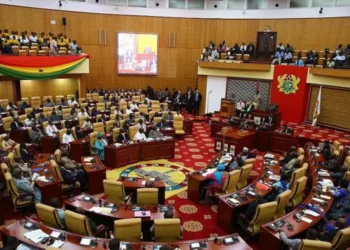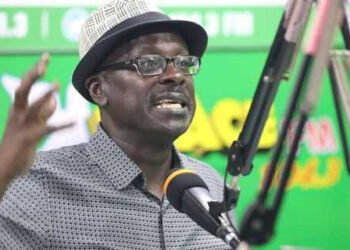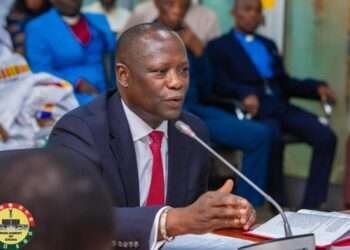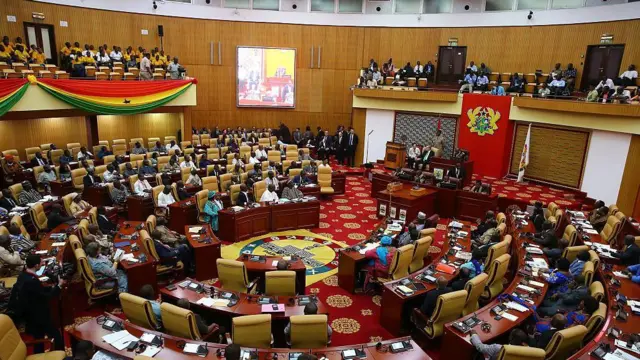Former Managing Director of the Electricity Company of Ghana (ECG), Samuel Dubik Mahama, has explained why a ‘dumsor’ timetable was never released despite persistent power outages between 2022 and 2024.
He acknowledged that Ghanaians repeatedly called for a schedule to manage the situation. Still, he insisted that the unpredictable nature of power generation at the time made it difficult to provide a definitive plan in the form of a timetable.
“At that point, we had a straight conversation with everybody and we said our situation was fluid.
“We had power plants running at peak periods, when there was heat, during the Christmas time and all of that – when the cold started to kick in, we could not anticipate which machine would shut down or which wouldn’t so we were having a very fluid situation”
Samuel Dubik Mahama, Former MD of ECG
Mr Mahama stated that the power system operated under fluctuating conditions which made technical failures often unexpected, making it difficult to anticipate when a particular plant would go offline.

He argued that whenever power outages were due to specific and predictable issues, ECG would have considered releasing a timetable. However, he emphasized that many of the disruptions resulted from ongoing maintenance or unforeseen breakdowns.
“Also, there were certain jobs that were being done that were critical and we felt that, okay, we could do this job within this short space of time and close the gap”
Samuel Dubik Mahama, Former MD of ECG
Mahama noted that between January and June of that period, ECG consistently lost between 200 to 300 megawatts of power.
He explained that this was largely attributed to fuel supply constraints, but also acknowledged that there were management inefficiencies that contributed to the situation.
When questioned about whether fuel shortages were the primary cause of ‘dumsor’, he conceded that while fuel supply issues played a significant role, operational and logistical failures within ECG also contributed.
“There were management issues too. There were days when it was a fuel problem.”
Mahama emphasized that the unpredictability of such situations made it difficult to commit to a timetable. He pointed out that unexpected breakdowns often occurred at the last minute, making it challenging to provide advance notice to the public.
“And let’s say a compressor goes off. The engineers working on the compressor: ‘Oh, we’ll be done in about just four hours so just give us some time.’ You get back to them, they say ‘Oh, we’ll be done in another hour just give us some time'”
Samuel Dubik Mahama, Former MD of ECG

ECG’s Financial Burden
The former MD also addressed the financial impact of load shedding on ECG, stating that power outages hurt the company as much as they did consumers.
“Let me be very honest with you. The cost of unsold energy is detrimental to ECG. It is in ECG’s interest to make sure that there’s power running and there’s power being given to its customers to make the requisite money”
Samuel Dubik Mahama, Former MD of ECG
He explained that ECG relied on electricity consumption to generate revenue and that any disruptions to this course directly affected their earnings.
He revealed that an audit conducted by KPMG on ECG’s financial losses due to unsold electricity showed alarming figures, further emphasizing that ECG had no incentive to keep power off unless absolutely necessary.
“The cost of unsold energy is huge,” he expressed.
ECG Containers Misplaced, Not Missing
Mahama also responded to the missing ECG containers allegations, insisting that the containers were at worst only misplaced.
He explained that the confusion should not be attributed to the ECG alone since the last confirmed location of the containers were at the port, under the control of the Ghana Ports and Harbors Authority (GPHA) and Ghana Customs.
“The beautiful thing is that as of the last time the minister spoke at the beginning of this whole container case or container saga, he said the containers were in the port”
Samuel Dubik Mahama, Former MD of ECG
He asserted that the situation would have been different if the containers had already been released to ECG’s custody and then disappeared.
However, since the containers remained within the port system, he believed the issue was merely one of misplacement rather than outright loss.
Mahama stressed that international supply chain logistics makes it nearly impossible for containers to disappear without a trace.
“If they get lost at sea, you are immediately informed. There’s no record of the fact that containers got lost at sea. Because of international supply chain logistics, there’s a platform where when you key in a container – the waybill, who was in control of the container, all of that is there”
Samuel Dubik Mahama, Former MD of ECG

He explained that every container has a unique number that was registered in a global database, making it easy to track their location at any given time.
He urged all stakeholders, including ECG, GPHA, and Customs, to collaborate in reviewing the paperwork and tracking the containers through the system, expressing confidence that a proper audit would reveal their exact locations.
“I just think you know we should dial it down a notch and let’s all assist the minister because we all need to get to the bottom of this”
Samuel Dubik Mahama, Former MD of ECG
Official Auctioning
Mahama further explained that the only way a container could leave the port without ECG’s knowledge was through an official auction. However he insisted that the relevant authorities maintained records of all auctioned containers.
“There’s also a database that will show which containers have been auctioned, so let’s just use the system because international supply chain logistics is one thing that is sacrosanct”
Samuel Dubik Mahama, Former MD of ECG
He further underscored the stringent tracking mechanisms used in international shipping, noting that a container’s identification number remained valid throughout its lifespan.
If a container was decommissioned for other purposes, such as “housing projects, its number was permanently retired from the system.”
Mahama called for calm in the ongoing discussions surrounding ECG’s challenges, emphasizing that systemic issues often required time and coordination to resolve.
He maintained that ECG acted in good faith regarding both the ‘dumsor’ situation and the alleged missing containers, urging all stakeholders to rely on data and proper procedures to find solutions.
READ MORE: Global Push to Cut Air Pollution by 2040





















